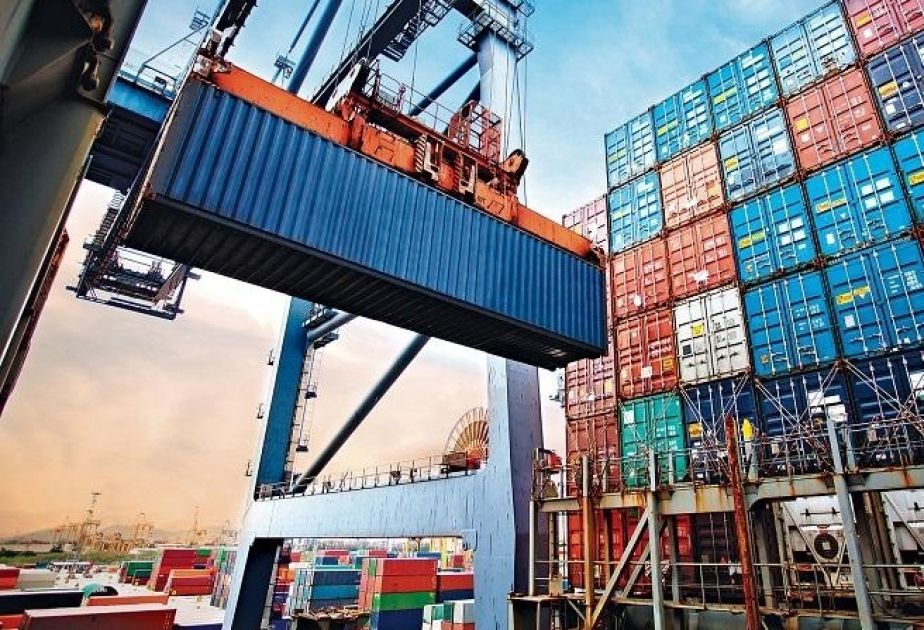Expert unfolds key contributors to surge in Azerbaijan's non-oil exports

Last year, Azerbaijan witnessed an achievement in its non-oil exports. The Export and Investment Promotion Agency (AZPROMO) revealed a record-setting value for non-oil exports in January-December of the previous year, totaling $3.348 billion – a notable 9.8% increase from 2022.
Undoubtedly, the reasons for the emergence of this trend and the factors affecting it in a positive sense are also of special interest.
In a comment on this issue for Azernews, economist expert Elshad Mammadov provided insightful perspectives and identified key contributors to the surge in non-oil exports, including the agricultural sector and the export of gold. He emphasized the potential for increased exports of products with higher processing depth related to oil refining. While acknowledging the current modest numbers, Mammadov highlighted the untapped potential in these areas, signaling room for substantial growth.
"From the point of view of non-oil exports, first of all, we should mention the agricultural sector, the export of gold has an important share from the point of view of non-oil exports, and in addition to this, there were several projects, the implementation of which created an opportunity to export products related to higher processing depth related to oil refining. These are not yet expressed in large numbers, we are still far from the potential in these directions, and even if we analyze non-oil exports, we will see that the raw materials are still not sufficiently processed here, and this is reflected in exports, but on the whole, we see the growth of non-oil exports. I think this can be expressed in larger numbers. At the same time, the price increase in the world market of inflation has an impact on the volume of non-oil exports and its volume in monetary terms, and it shows its effects on the growth of these prices, including the growth of non-oil exports," he said.
Discussing traditional trading partners, Mammadov pointed to the Russian Federation, post-Soviet countries, and Turkiye. He stressed the importance of nurturing relationships with these countries to enhance trade turnover. While acknowledging efforts to explore new markets, Mammadov emphasized the stability and priority of trade with neighboring countries. He sees prospects for expanding cooperation, especially with Central Asian nations.
"The main trading partners of Azerbaijan in non-oil exports are traditionally Russia, post-Soviet countries, and Turkiye. While efforts to explore new markets are ongoing, the stability and priority of trade with neighboring countries remain evident. Prospects for expanded cooperation, especially with Central Asian nations, are promising," the expert underlined.
E. Mammadov acknowledged the inevitable risks and challenges in international trade, emphasizing the need to avoid simplistic approaches. He highlighted the complexities arising from the breakdown of transport logistics links and stressed the importance of deepening regional economic cooperation, promoting products with high processing depth, expanding regional markets, and increasing investments, particularly in high-tech capacities.
"Risks in international trade are complex, requiring nuanced approaches. The challenges posed by the breakdown of transport logistics links necessitate a focus on deepening regional economic cooperation. To mitigate risks, optimizing approaches, expanding regional markets, and increasing investments in high-tech capacities are crucial," he added.

Despite global economic pressures on exports, Mammadov identified a window of opportunity in regional economic cooperation and integration. He advocated for active efforts to deepen regional economic ties, recognizing the potential for enhanced development in the processing sector. The economist correlated this development with the creation of new jobs, increased purchasing power, and overall economic growth.
"On the one hand, global economic conditions put pressure on exports, because the breaking of global chains is a pressure from the point of view of exports, but on the other hand, it is a window of opportunity. It seems to me that the countries located in the region should actively achieve the deepening of regional economic cooperation and integration. Because, the more we lose the markets in distant countries, the more we gain opportunities in the region, and if we witness the rapid division of the world economy into regions, then we can achieve the development of the processing sector by considering more production points in the regions. The development of the processing sector is always better for foreign trade, and this means both new jobs and an increase in the purchasing power of the country's population, which should be done in this direction. Regarding this, socially oriented measures and social envelopes implemented in Azerbaijan contribute to the protection and development of purchasing power in the country. At the same time, there is a need to support these processes, and this support should be implemented by investment and production growth, which will be the opening of new high-wage jobs stimulating economic growth and development," expert concluded.
---
Follow us on Twitter @AzerNewsAz
Here we are to serve you with news right now. It does not cost much, but worth your attention.
Choose to support open, independent, quality journalism and subscribe on a monthly basis.
By subscribing to our online newspaper, you can have full digital access to all news, analysis, and much more.
You can also follow AzerNEWS on Twitter @AzerNewsAz or Facebook @AzerNewsNewspaper
Thank you!

